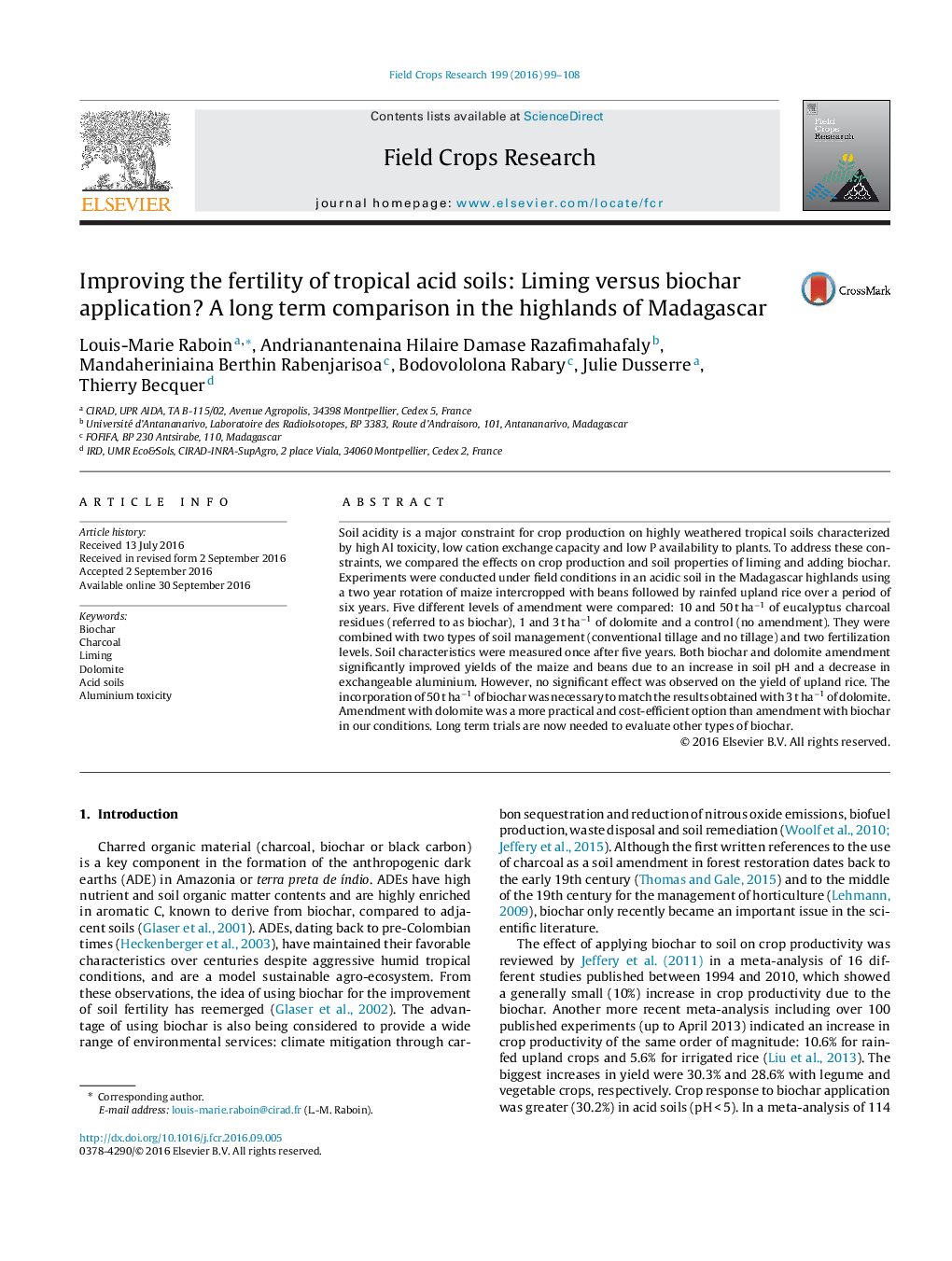| Article ID | Journal | Published Year | Pages | File Type |
|---|---|---|---|---|
| 6374431 | Field Crops Research | 2016 | 10 Pages |
â¢Both charcoal and dolomite amendment increase pH and reduce Al toxicity.â¢Both charcoal and dolomite amendment increase yields of maize and beans.â¢Neither charcoal nor dolomite amendment increase yield of upland rice.â¢50 t haâ1 of charcoal are necessary to match the effect of 3 t haâ1 of dolomite.
Soil acidity is a major constraint for crop production on highly weathered tropical soils characterized by high Al toxicity, low cation exchange capacity and low P availability to plants. To address these constraints, we compared the effects on crop production and soil properties of liming and adding biochar. Experiments were conducted under field conditions in an acidic soil in the Madagascar highlands using a two year rotation of maize intercropped with beans followed by rainfed upland rice over a period of six years. Five different levels of amendment were compared: 10 and 50 t haâ1 of eucalyptus charcoal residues (referred to as biochar), 1 and 3 t haâ1 of dolomite and a control (no amendment). They were combined with two types of soil management (conventional tillage and no tillage) and two fertilization levels. Soil characteristics were measured once after five years. Both biochar and dolomite amendment significantly improved yields of the maize and beans due to an increase in soil pH and a decrease in exchangeable aluminium. However, no significant effect was observed on the yield of upland rice. The incorporation of 50 t haâ1 of biochar was necessary to match the results obtained with 3 t haâ1 of dolomite. Amendment with dolomite was a more practical and cost-efficient option than amendment with biochar in our conditions. Long term trials are now needed to evaluate other types of biochar.
